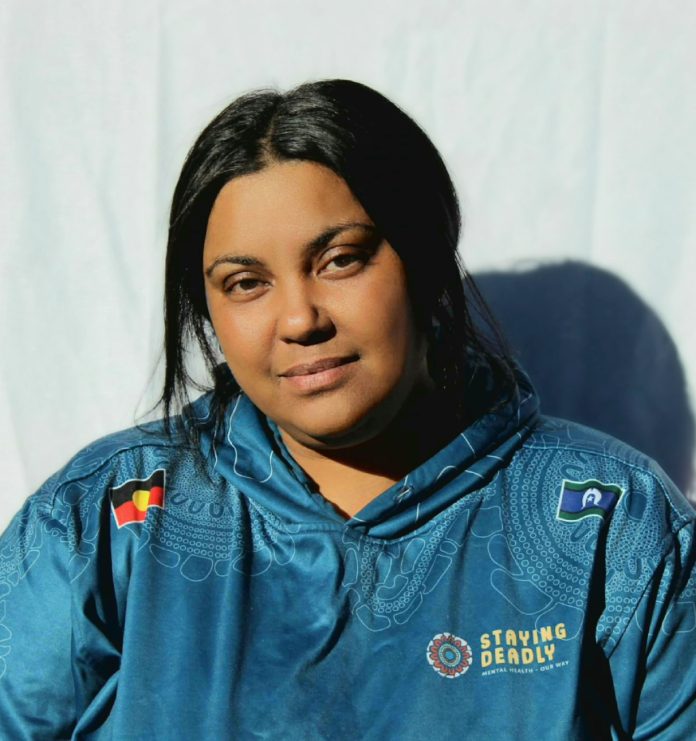Tamara Solien spent 11 years as a stay-at-home mum-of-five.
But now the 37-year-old uses her compassionate and caring nature to help the local First Nations community overcome some of life’s biggest hurdles – all while juggling parenthood.
Ms Solien is a proud Torres Strait Islander woman with a connection to Badu Island, and a passion for helping those struggling with mental health.
Recently, she finished a Certificate IV in Mental Health while balancing life as a busy mum.
She has since secured a job as a mental health support worker with Staying Deadly Hub, a service run by the Institute for Urban Indigenous Health that provides specialised mental health care to mob across the region.
According to Beyond Blue, First Nations people are twice as likely to experience
psychological distress than non-indigenous Australians, and 2.5 times more likely to die by
suicide.
“For a lot of Indigenous Australians, there is a lot of distrust in the system, and a fear of
hospitals and institutions,” Ms Solien said.
“So having a service like this that is in a more relaxed space and that provides support from people who understand and have that lived experience is so important.”
Ms Solien said she was drawn to the role after seeing her own brothers struggle with their mental health.
“Like many people who haven’t experienced mental illness themselves, I’d often find myself
getting frustrated. The solution seemed so simple and I’d think, ‘why don’t you just stop
these behaviours, or just do things this way?’.
“So, initially I wanted to learn more so I could gain more insight into what my brothers were going through.
“The idea of returning to study and work was so scary after being out of the workforce for so long, so I wanted to make sure I was pursuing something I was passionate about. If I was going to be stepping back from being a fulltime mum to my kids, it needed to be worth it – I had to get real fulfillment from it.”
Completing her studies was tough, with Ms Solien balancing motherhood, grieving the loss
of three family members, supporting her father, mother and brothers, and planning her
wedding – all within the 12 months.
“And that’s all while trying to be the best mum I could be for my five children,” she said.
“I was trying to be an anchor for everyone while achieving my own goals and planning a
wedding on top of all of that, so it was incredibly stressful. There were many times where I
almost dropped the course so I could just focus on everything else that was going on, but I’m so glad I pushed through.”
Now that she is finally in the job, Ms Solien said it was “so rewarding”.
As a support worker, Ms Solien sits in with clients when they meet with psychiatrists, psychologists, mental health nurses and care coordinators, offering support in what can be a difficult and emotionally-charged situation.
“I’m like the in-between bridge so our clients aren’t so overwhelmed when they come in
seeking support. I’m there to give them emotional support and help them feel comfortable.
“It’s about letting them vent without judgement. Seeing someone leave a session in a lighter mood and better headspace, and knowing that I helped, is just so rewarding.”
While still early on in her career, Tamara is adamant she’s found her path, and is keen to
work her way up to becoming a care coordinator.
It was during her vocational placement with The Murri School that Tamara——realised just how much it meant to
her to be able to support those most vulnerable in her community.
“I felt particularly drawn to helping Indigenous mums. Being a mum myself and going back to
study, I lacked confidence in myself and worried I wasn’t smart enough, so I wanted to
support other Aboriginal and Torres Strait Islander mothers who felt the same,” Tamara said.
“This is my reward for sticking it out with my studies, despite the challenges. I absolutely love it,” Tamara said.



